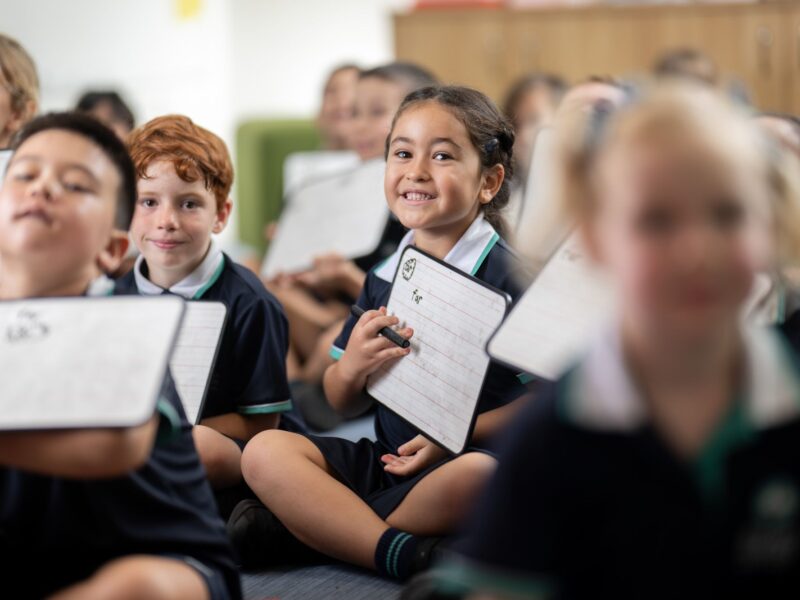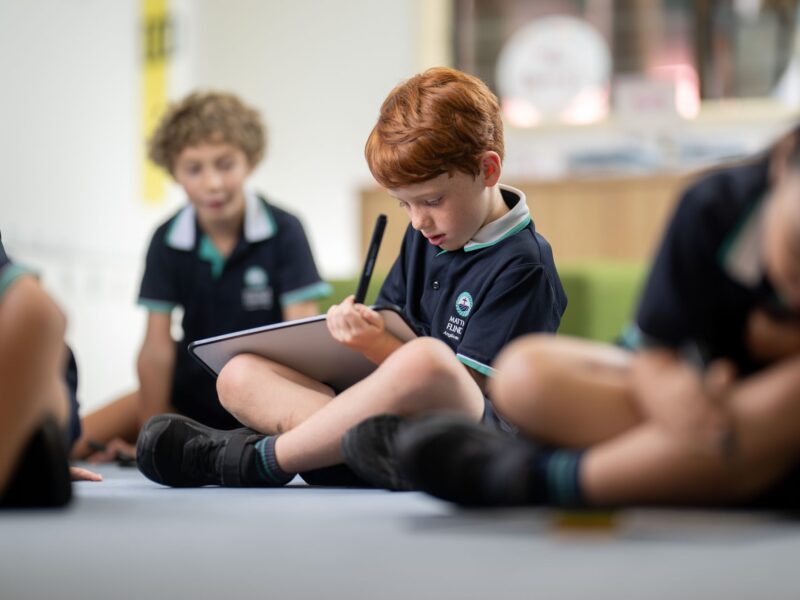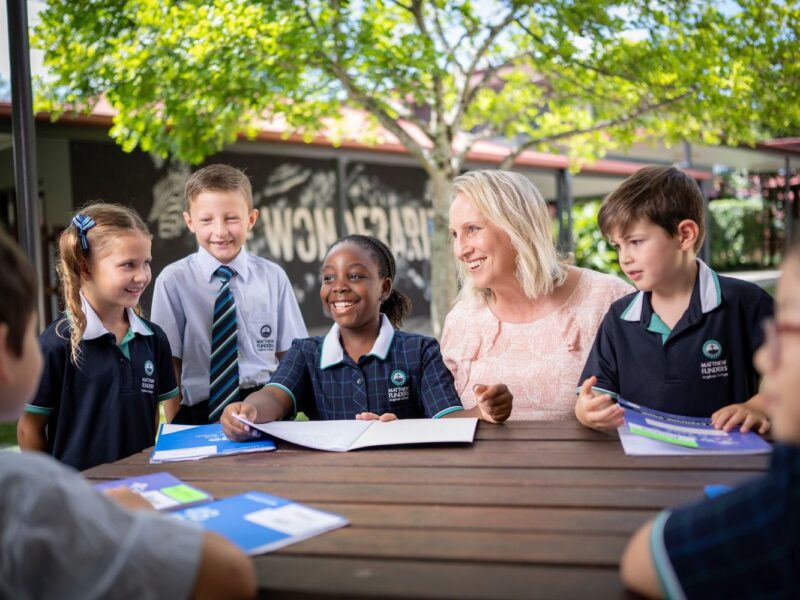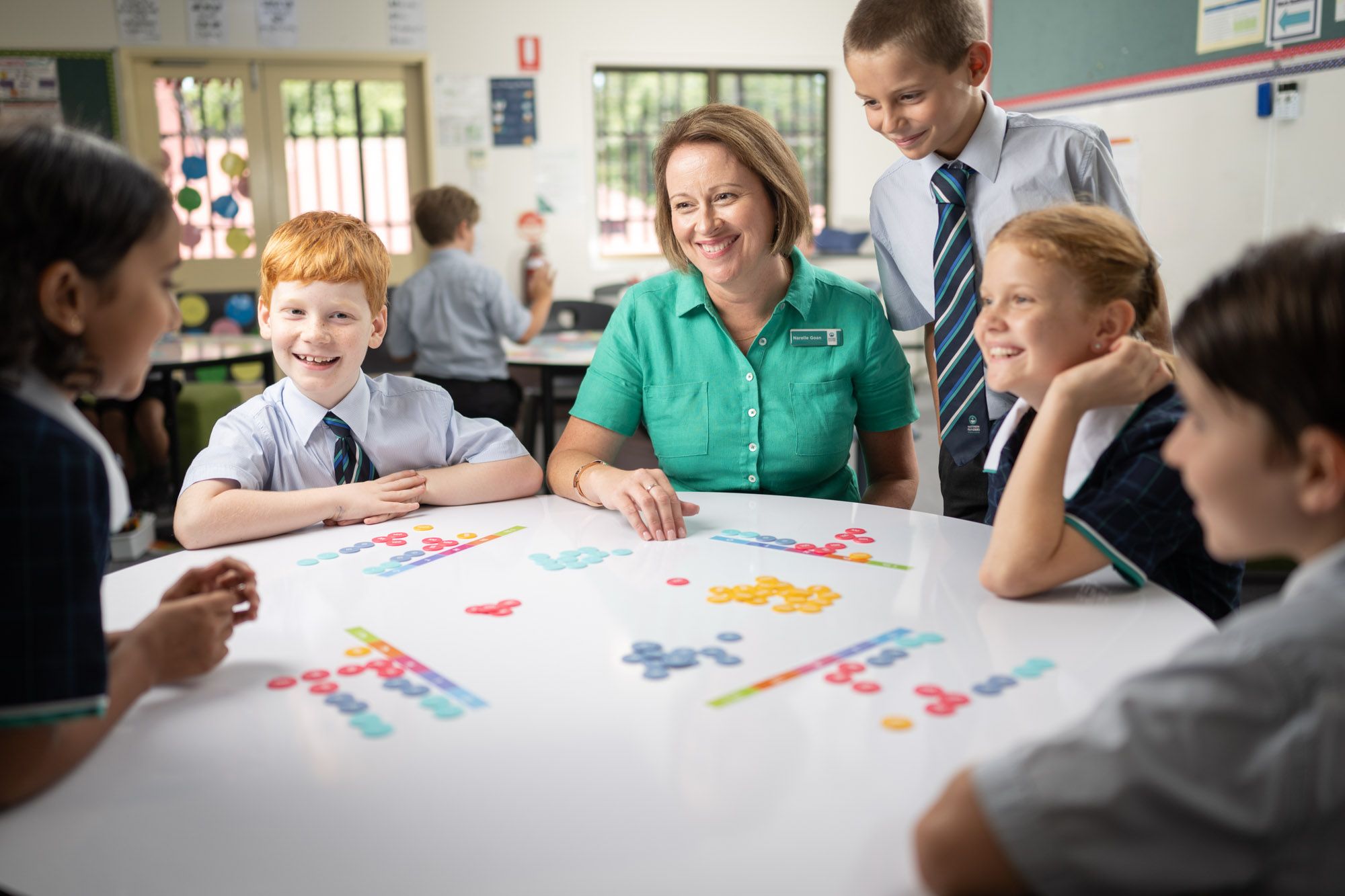By Mrs Narelle Goan, Head of Professional Practice and Curriculum, Flinders Primary School
As your child embarks on their educational journey this year, it's useful to understand the science behind learning.
At Flinders Primary School, we embrace the Science of Learning (SoL) as an interdisciplinary approach that combines insights and research from neuroscience, psychology and education to understand how children learn best.
This approach examines the processes underlying learning and memory, and the conditions that optimise learning experiences. By understanding how the brain acquires and processes information, we can create more effective, engaging and inclusive learning environments for our students.
Our Primary staff are delving into and applying evidence from the Science of Learning with the concepts of working memory, long-term memory, spaced practice and retrieval practice into their planning and instructional practices to improve student learning.
Here are some of the concepts students explore daily in classroom learning across Prep to Year 6 in our Flinders Primary School.



Working Memory
Think of working memory as the brain's sketchpad, responsible for temporarily holding information for immediate processing. This crucial mental workspace is like a short-term storage system, allowing students to manipulate and understand new concepts. Working memory can only hold four pieces of information at a time and one of these is ‘knowledge’ or ‘skills’ they recall from their long-term memory. As teachers, we aid our students by minimising distractions, encouraging focus, providing worked examples and breaking down complex information into smaller, more digestible pieces or chunks.
Long-Term Memory
Long-term memory is where lasting knowledge resides. If there isn’t a change in long-term memory then it has not been learned. By actively engaging this part of the brain, students can move information from working memory to long-term memory, ensuring they retain and recall it later. Encouraging our students to connect new knowledge to existing information fosters a web of understanding called ‘schema’. Establishing a routine that includes regular review and practice helps solidify these connections, contributing to lasting mastery.
Spaced Practice
Research consistently shows that spaced practice, also described as ‘distributing learning over time’, is a powerful tool for memory retention. Encouraging our students to revisit learned material at intervals allows the brain to strengthen the neural pathways associated with that information. Homework routines support this strategy of spaced practice, making learning a consistent and gradual process, consistently reinforcing concepts and skills with mastery and purpose.
Retrieval Practice
Retrieval practice involves actively recalling information from memory, a process that strengthens retention. Teachers intentionally craft moments into their lessons to allow students to retrieve and rehearse their knowledge and skills. This not only reinforces what they've learned but also enhances their ability to retrieve information when needed, a valuable skill for problem solving and the transfer of skills to real-world applications.
In our Flinders Primary School we embrace the evidence about the Science of Learning and incorporate these strategies into our student’s education to play an active role in fostering academic success.
Embarking on this journey of knowledge discovery ensures that our students not only learn but truly understand and retain the valuable lessons that will shape their future learning.
Ideas to support your child’s learning at home:
- With your child, create a quiet, organised space for studying. This helps to minimise distractions so your child can concentrate and engage their working memory effectively.
- Encourage your child to recall what learning took place during the day by asking them questions and participating actively in discussions after reading a book or listening to a song, for example. Active engagement enhances understanding and promotes better memory retention.
- Consistency is key. Establish a regular homework routine that includes spaced practice and retrieval practice, helping your child turn learning into a long-term, sustainable habit.
- Support your child in knowing that intelligence is not fixed; it can be developed through effort and perseverance as this encourages resilience and a positive attitude toward learning challenges.

To learn more about learning in our Flinders Primary School, visit here.

